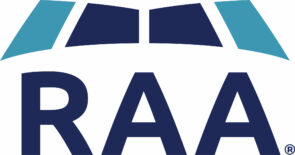TAX LAW CHANGES FOR THE 2021 TAX SEASON
- Posted by Kristi Cherry, CPA®
- On February 18, 2021
It has obviously been a very unique time in all aspects of life, including tax law changes. The future of many tax laws in place due to the Tax Cuts and Jobs Act of 2017, The Secure Act, and The CARES Act remain unknown at this time as a new administration takes over this month. But, as of right now, the following are the inflation adjustments and some of the other tax changes that will go into effect for the 2021 tax season. It is important that you take these changes into consideration as you build out your financial plan for this year.
INCOME TAX CHANGES
The top 2021 tax rate for single filers with income greater than $523,600 and married couples filing jointly with income greater than $628,300 will be at 37%. If you are not in that income tax bracket, refer to the chart below for your 2021 tax rate.
- 35% for incomes over $209,425 ($418,850 for married couples filing jointly);
- 32% for incomes over $164,925 ($329,850 for married couples filing jointly);
- 24% for incomes over $86,375 ($172,750 for married couples filing jointly);
- 22% for incomes over $40,525 ($81,050 for married couples filing jointly);
- 12% for incomes over $9,950 ($19,900 for married couples filing jointly);
- The lowest rate is 10% for incomes of single individuals with incomes of $9,950 or less ($19,900 for married couples filing jointly)
STANDARD DEDUCTION AND EXEMPTION CHANGES
The standard deduction for the 2021 tax season will be $12,550 for single filers and $25,100 for married couples filing jointly. Married and filing jointly taxpayers who are age 65 or older will receive an additional standard deduction of $1,300 each. Single taxpayers who are 65 or older will receive an additional standard deduction of $1,650. Personal exemptions will remain at zero.
ITEMIZED DEDUCTION CHANGES
All state and local tax deductions will remain limited to $10,000 for the 2021 tax season. Itemized deductions can be a mixture from both the state and local levels, including local income taxes, sales tax, and property taxes.
The medical expense deduction has been reduced. The threshold will increase to 10% from the 2020 amount of 7.5% of adjusted gross income, regardless of your age.
Miscellaneous deductions will remain at zero. Pilots should take note this includes unreimbursed employee business deductions, such as per diem expenses (out-of-pocket pilot expenses). Also included in miscellaneous deductions are home office expenses, tax preparation fees, and investment fees. However, a few states still allow these miscellaneous itemized deductions on the state tax return, such as California.
RETIREMENT-SPECIFIC CHANGES
The traditional and Roth IRA contribution limits will remain the same at $6,000 for taxpayers under age 50 and $7,000 for taxpayers age 50 and older. However, if you are married and your adjusted gross income exceeds $198,000, then you will not be able to make a full contribution to a Roth IRA. In this case, a backdoor Roth would offer a workaround to allow you to continue to contribute to your Roth IRA.
The 401(k) employee contribution limits remain at $19,500 for taxpayers younger than age 50 with a $6,500 catch-up for taxpayers 50 or older for a total of $26,000. The Defined Contribution Limit (415(c)), which represents the limit of total tax-deferred dollars allowed in a defined contribution plan, will increase from $57,000 to $58,000. Keep in mind this applies to both employee and employer contributions. The Annual Compensation Limit (415(a)), which represents the salary limit that an employer can use when applying their matching formula, will increase to $290,000. In many plans, the catch-up contribution for clients age 50 and older is a separate election.
Also, please note the Secure Act increased the age at which taxpayers must begin taking required minimum distributions (RMDs) from age 70 1/2 to 72 beginning in 2020.
OTHER TAX CHANGES
The estate tax threshold for the 2021 tax season will increase to $11,700,000 per taxpayer. Flexible Spending Account (FSA) contribution limits will remain at $2,750. Health Savings Account (HSA) contribution limits will increase to $3,600 for individuals and $7,200 for families.
The CARES Act added a $300 charitable contribution deduction outside of itemized deductions (above-the-line deductions). This is beneficial for taxpayers that take the standard deduction because they will be able to reduce their adjusted gross income by up to $300 for any donations made to a qualifying charity.
WANT TO LEARN MORE ABOUT HOW TAXES IMPACT YOUR FINANCIAL PLAN?
Keeping up with all of the recent tax law changes can be stressful and time-consuming, especially when it comes to knowing how they affect your financial future and what, if any, adjustments need to be made. Request a free financial consultation with an airline-specialized advisor to discuss how your tax strategy fits into your overall financial plan by submitting the form below.
Disclaimer: This blog is intended for informational purposes only and should not be construed as individual investment advice. Actual recommendations are provided by RAA following consultation and are custom-tailored to each investor’s unique needs and circumstances. The information contained herein is from sources believed to be accurate and reliable. However, RAA accepts no legal responsibility for any errors or omissions. Investments in stocks, bonds, and mutual funds may increase or decrease in value. Past performance is no guarantee of future results. Any of the charts and graphs included in this blog are not recommendations for the purchase and sale of any security.



0 Comments